Bulletin #45
—Illuminating the underlying logic of statistics, and how it can be used for or against us—
The Non-fiction Feature
Naked Statistics: Stripping the Dread from the Data
Author: Charles Wheelan
Publisher: W.W. Norton & Company
Pages: 304 | 2014

What is the point of learning statistics? To summarize large quantities of data. To make better decisions. To answer important social questions….To evaluate the effectiveness of policies, programs, drugs, medical procedures, and other innovations.
And to spot the scoundrels who use these very same powerful tools for nefarious ends.
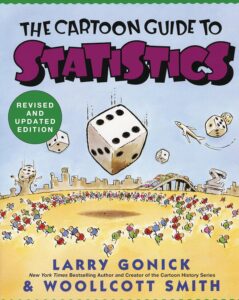
The Children’s Spot
The Cartoon Guide to Statistics
Larry Gonick & Woollcott Smith
“When we work out the odds in a game of chance, don’t forget it is a game of chance!
…If you only play a game once or twice, then the results might be very different from your predictions.
However, if you play lots of times, you should find that things “average out” and overall you get what you expected.”

The Product Spot
Khan Academy
A super helpful free resource for learning the basics of almost any subject you can think of.
Bulletin #44
—The incredible mass movement of millions of blacks forging a path north in the early 1900s—
The Non-fiction Feature
The Warmth of Other Suns: The Epic Story of America’s Great Migration
Author: Isabel Wilkerson
Publisher: Vintage
Pages: 640 | 2011
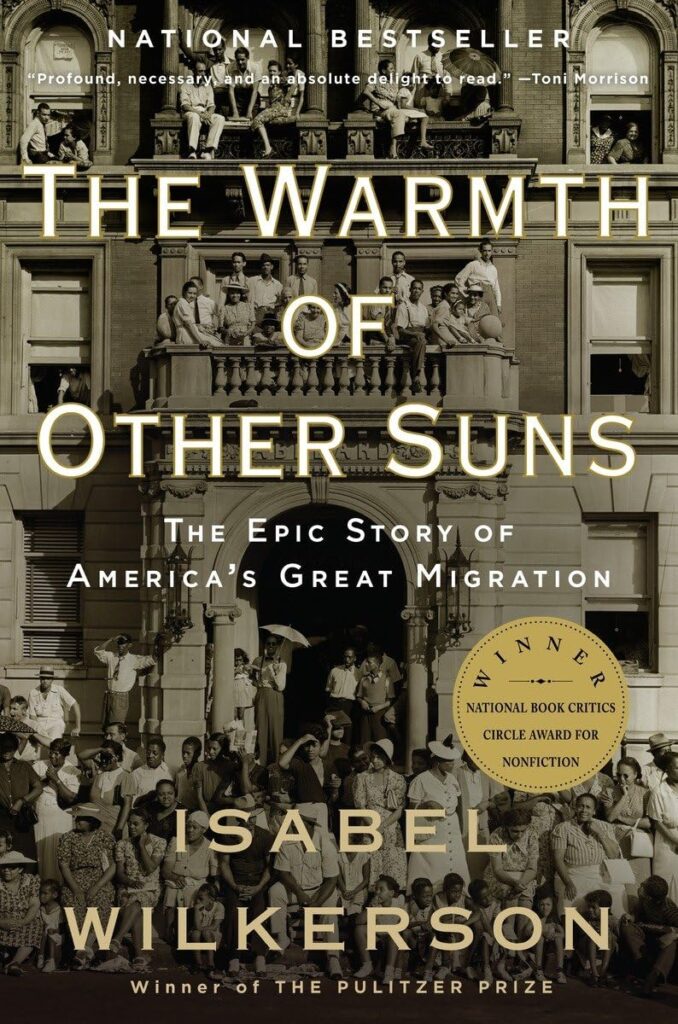
All told, perhaps the most significant measure of the Great Migration was the act of leaving itself, regardless of the individual outcome.
Despite the private disappointments and triumphs of any individual migrant, the Migration, in some ways, was its own point. The achievement was in making the decision to be free and acting on that decision, wherever that journey led them.

The Poetry Spot
The Collected Poems of Langston Hughes
Arnold Rampersad, Editor
That is the South.
And I, who am black, would love her
But she spits in my face. And I, who am black,
Would give her many rare gifts
But she turns her back upon me. ? So now I seek the North–
The cold-faced North,
For she, they say,
Is a kinder mistress,
And in her house my children
May escape the spell of the South.

The Product Spot
PBS – Slavery by Another Name (film)
A film about why black Southerners sought to leave, the North’s role in the migration, and the factors that led to the migration.
Bulletin #43
—How U.S. foreign affairs shaped the world with the Order, and a view of what’s to come—
The Non-fiction Feature
Disunited Nations: The Scramble for Power in an Ungoverned World
Author: Peter Zeihan
Publisher: Harper Business
Pages: 480 | 2020
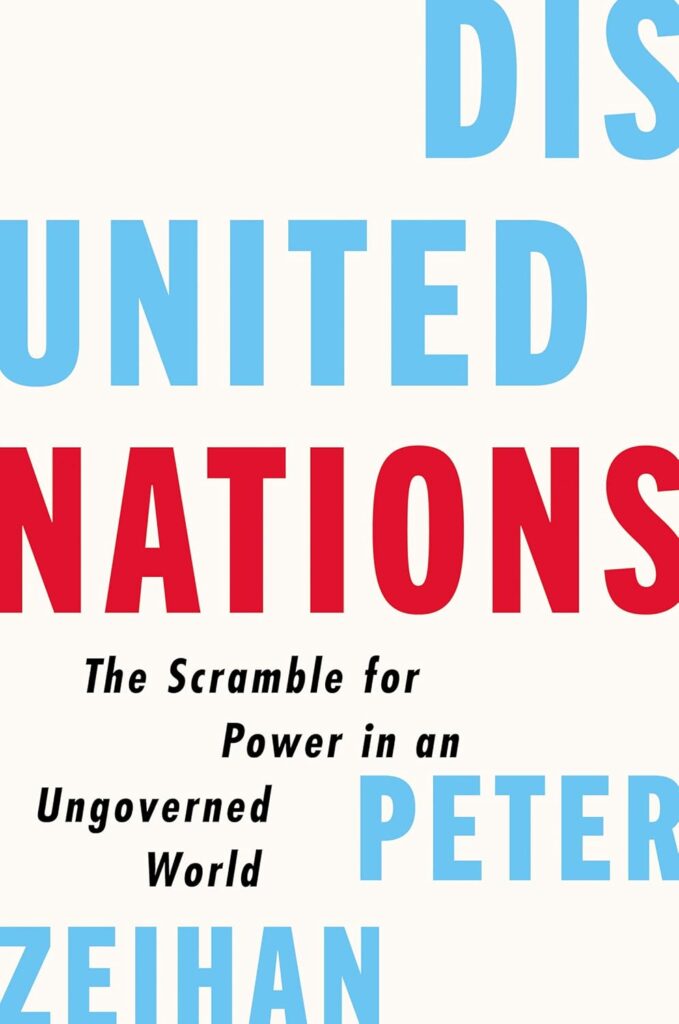
Disunited Nations is about what happens when major powers decide they are better off competing instead of cooperating.
It is a book about what happens when the global Order isn’t just falling apart but when many leaders feel their country will be better off tearing it down.

The Fiction Spot
Things Fall Apart
by Chinua Achebe
“The missionaries had come to Umuofia. They had built their church there, won a handful of converts and were already sending evangelists to the surrounding towns and villages.
That was a source of great sorrow to the leaders of the clan, but many of them believed that the strange faith and the white man’s god would not last.”

The Product Spot
Foreign Affairs
Via essays, reports, books, a podcast, and more, Foreign Affairs is incredibly useful as a high-level, thorough, substantive, and intelligent take on how the U.S. impacts the world today.
Bulletin #42
—The evolution of the U.S. media, and how it became the force it is today—
The Non-fiction Feature
The Creation of the Media: Political Origins of Modern Communications
Author: Paul Starr
Publisher: Basic Books
Pages: 496 | 2005
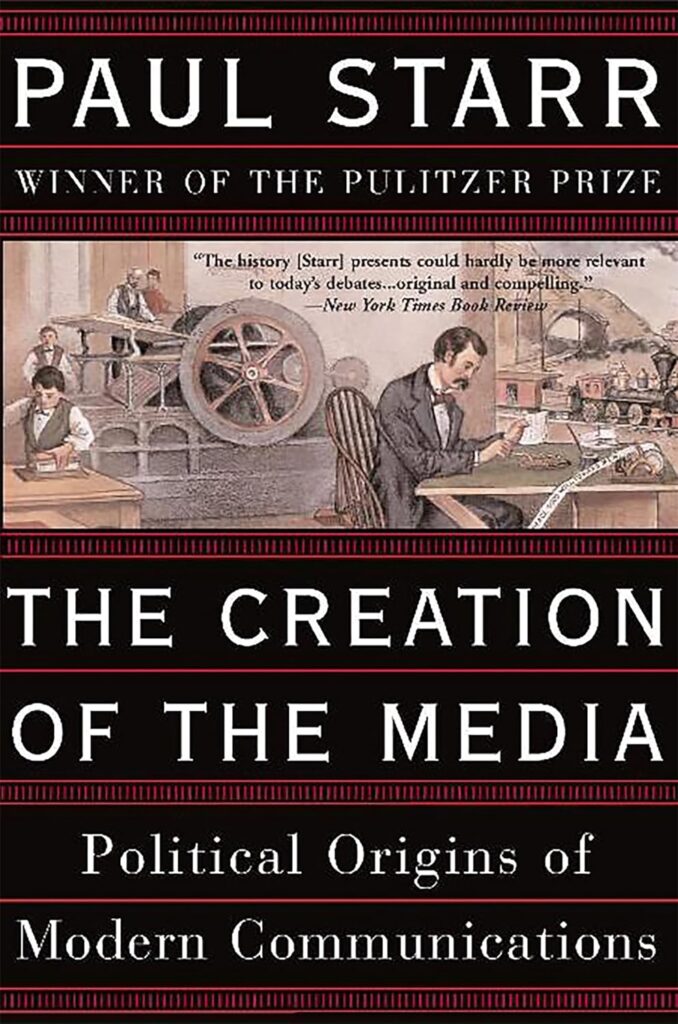
Under this extraordinary arrangement, the federal government as well as the state of New York, the leading center of the publishing industry, turned over primary responsibility for the enforcement of moral censorship to [Anthony Comstock], employed by an elite private society composed exclusively of Christian men.

The Memoir & Poetry Spot
Me and The Times
by Robert Stock
“My editing experience with Times reporters too often followed a predictable sequence: I would send an edited version of the story to the reporter, followed by a phone call or a sit-down at my desk.
We would go through the piece, with the reporter challenging each change. I would explain my reasoning.
There would be a pause while the reporter considered the matter, followed by an expression of surprise, sometimes disbelief, as he or she grudgingly acknowledged that a change was warranted.”
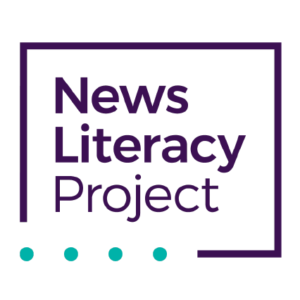
The Product Spot
News Literacy Project
The News Literacy Project provides resources for the general public and educators to help them learn how to identify credible information.
Bulletin #41
—An examination of how we think the way we think via System 1 (intuitive) and System 2 (deliberative)—
The Non-fiction Feature
Thinking, Fast and Slow
Author: Daniel Kahneman
Publisher: Farrar, Straus and Giroux
Pages: 512 | 2013
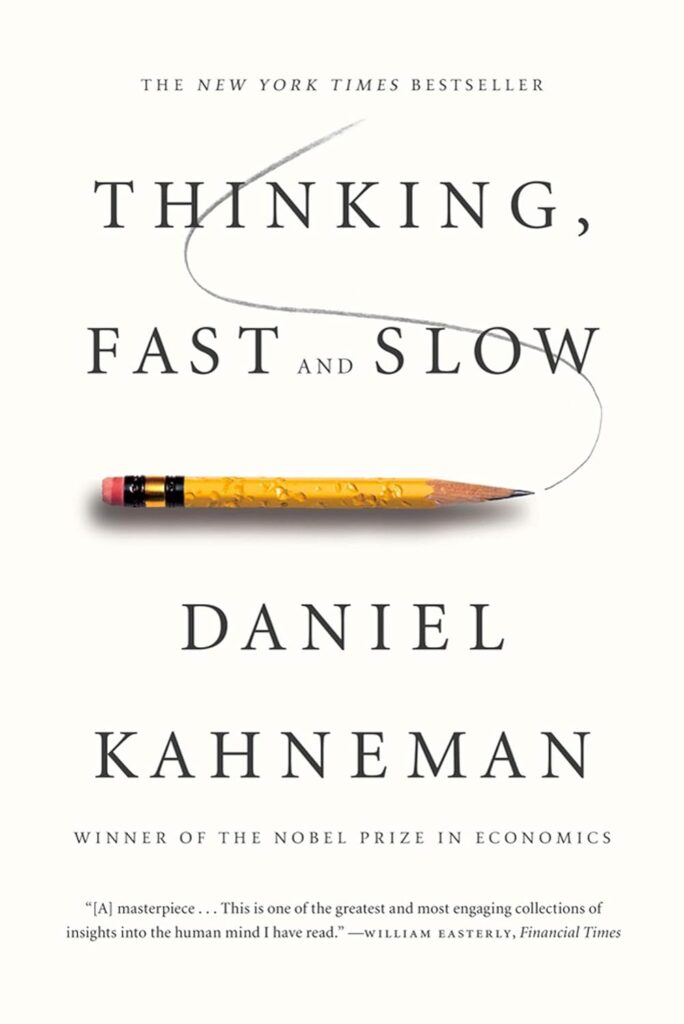
System 1 is designed to jump to conclusions from little evidence–and it is not designed to know the size of its jumps…
For some of our most important beliefs we have no evidence at all, except that people we love and trust hold these beliefs.
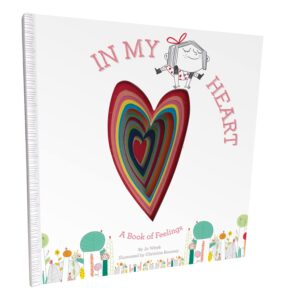
The Children’s Spot
In My Heart
by Jo Witek
My heart is full of feelings.
Big feelings and
small feelings.
Loud feelings and quiet feelings.
Quick feelings and slow feelings.
My heart is
like a house,
with all these feelings living inside.

The Product Spot
Tetris
Tetris can pull you out of an anxious mental state into a calmer state of flow, where you are doing something somewhat repetitive that requires some skill and strategy.
Bulletin #40
—The modern world revolves around data, but because data treats men (not women) as the default, bias against women is inherent in the systems that run our lives—
The Non-fiction Feature
Invisible Women
Author: Caroline Criado Perez
Publisher: Abrams Press
Pages: 488 | 2021
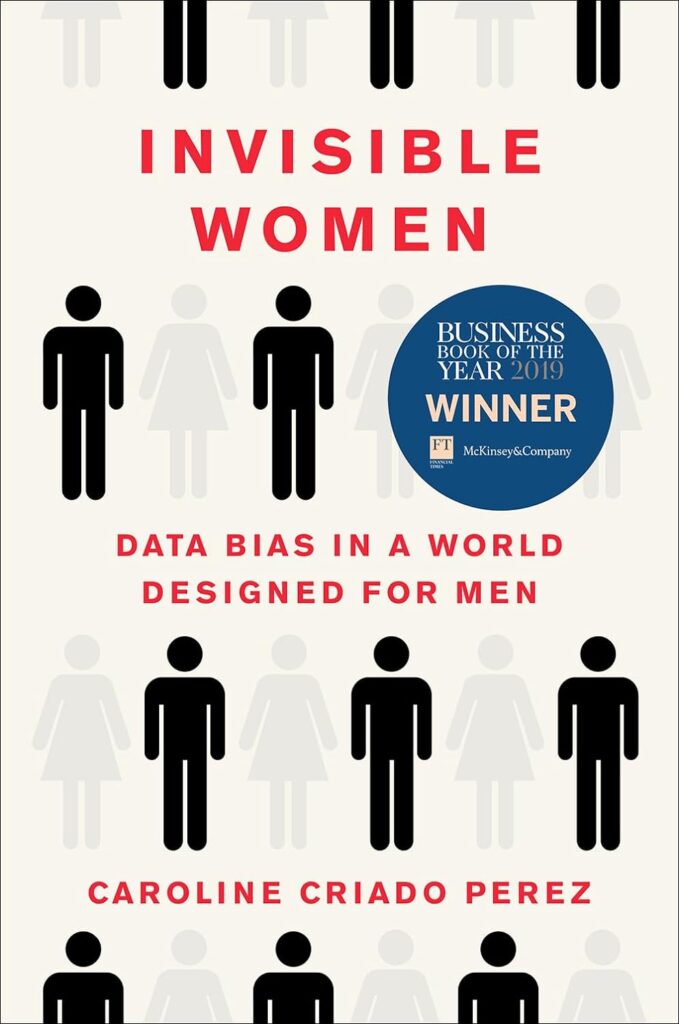
We like to think that the unpaid work women do is just about individual women caring for their individual family members to their own individual benefit.
It isn’t…When the government cuts public services that we all pay for with our taxes, demand for those services doesn’t suddenly cease. The work is simply transferred onto women…
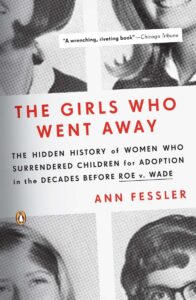
The Memoir Spot
The Girls Who Went Away – The Hidden History of Women Who Surrendered Children for Adoption in the Decades before Roe v. Wade
by Ann Fessler
“Yet another myth in common currency is that these women did move on and forget.
In truth, none of the mothers I interviewed was able to forget. Rather, they describe the surrender of their child as the most significant and defining event of their lives.”

The Product Spot
UN Women Data Hub
The UN Women Data Hub has reports on data on security and violence against women across the world, findings on how multiple countries left behind women in pandemic responses, and a comprehensive library of resources.
Bulletin #39
—A sweeping look at our technological eras, and what our past eras tell us about the one we exist in today—
The Non-fiction Feature
The Master Switch: The Rise and Fall of Information Empires
Author: Tim Wu
Publisher: Vintage
Pages: 384| 2011
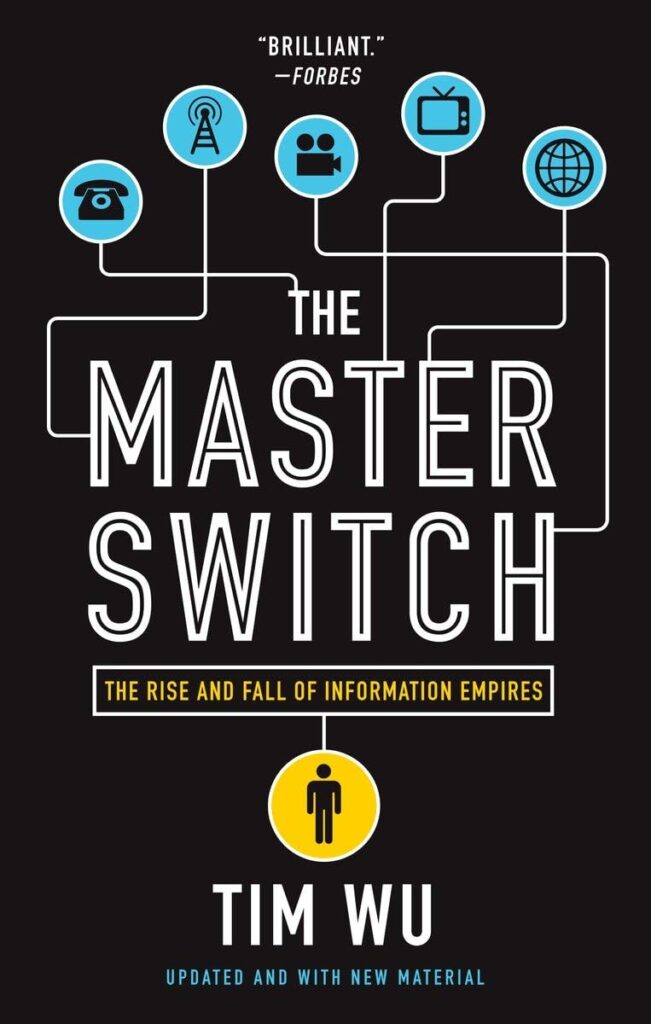
Yet for many people, the Internet’s structure was–indeed remains–deeply counterintuitive.
This is because it defies every expectation one has developed from experience of other media industries, which are all predicated on control of the customer…the Internet abdicates control to the individual; that is its special allure, its power to be endlessly surprising, as well as its founding principle.

The Memoir Spot
Alibaba – The House That Jack Ma Built
by Duncan Clark
“Everything I’d learned in China was that China was the richest country in the world,” Jack later said.
“When I arrived in Australia, I realized it was totally different. I started to think you have to use your own mind to judge, to think.”
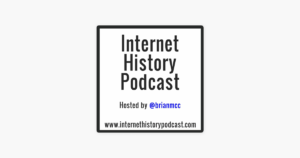
The Product Spot
Internet History Podcast
A fun podcast about the history of the internet!
Bulletin #38
—The horrors that Central American migrants face, caused in part by U.S. policies, when fleeing north—
The Non-fiction Feature
The Beast: Riding the Rails and Dodging Narcos on the Migrant Trail
Author: Oscar Martinez
Publisher: Verso
Pages: 224| 2014

I hope, rather, that the book generates respect for these men and women, for those who have done something for their families that many of us could hardly find the strength to do.
Respect for this drive that migrants have, a drive which is stronger than the criminal cartels, a drive more powerful than the train engine and a drive more vital than any limb–a leg, for example–of our very body.

The Children’s Spot
Mama’s Nightingale
by Edwidge Danticat
“The next time we visit Mama, I do my best not to cry. I sit on her lap and kiss her whole face.
I don’t ask when she’s coming home, because she doesn’t know either.”

The Product Spot
El Faro – Latin America’s first native internet newspaper
A newspaper, boasting bold journalists, that tells the stories about Latin America that nobody else dares.